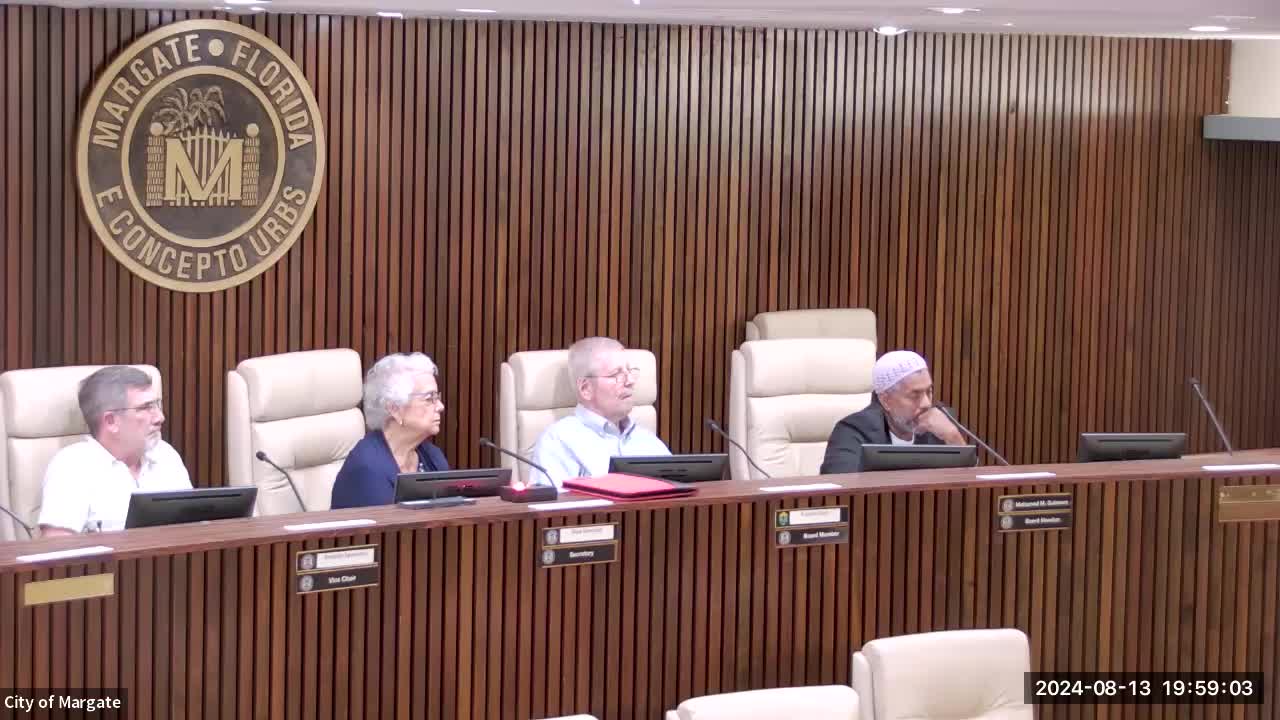Zoning Board Approves Controversial Development Amid Community Outcry
August 13, 2024 | Margate, Broward County, Florida
This article was created by AI summarizing key points discussed. AI makes mistakes, so for full details and context, please refer to the video of the full meeting. Please report any errors so we can fix them. Report an error »

In a recent government meeting, discussions centered around a controversial residential development project that has drawn significant community opposition. The project, initially proposed for 250 apartment units, has been scaled back to 132 units in response to local concerns. Proponents of the project emphasized that extensive traffic and environmental studies had been conducted, asserting that all necessary requirements had been met for approval.
During the meeting, board member Mohamed Suleiman highlighted the reduction in units as a compromise to address community feedback. He confirmed that traffic studies and environmental assessments had been completed, which were accepted by relevant authorities. Despite the project's adjustments, community members expressed their dissatisfaction, with one board member noting the significance of 3,652 signatures opposing the development—a substantial figure in a small city.
The board clarified that their role was limited to assessing compliance with existing regulations, rather than evaluating the merits of the project itself. This procedural focus led to frustration among residents, who felt their concerns were not adequately addressed. One member urged the community to continue voicing their opposition to city officials, emphasizing that the decision made that evening was merely a recommendation for conditional approval.
The meeting concluded with a unanimous vote in favor of recommending the project, despite ongoing community dissent. Board members encouraged residents to engage with city commissioners in future discussions, as the final decision on the development will ultimately rest with them.
During the meeting, board member Mohamed Suleiman highlighted the reduction in units as a compromise to address community feedback. He confirmed that traffic studies and environmental assessments had been completed, which were accepted by relevant authorities. Despite the project's adjustments, community members expressed their dissatisfaction, with one board member noting the significance of 3,652 signatures opposing the development—a substantial figure in a small city.
The board clarified that their role was limited to assessing compliance with existing regulations, rather than evaluating the merits of the project itself. This procedural focus led to frustration among residents, who felt their concerns were not adequately addressed. One member urged the community to continue voicing their opposition to city officials, emphasizing that the decision made that evening was merely a recommendation for conditional approval.
The meeting concluded with a unanimous vote in favor of recommending the project, despite ongoing community dissent. Board members encouraged residents to engage with city commissioners in future discussions, as the final decision on the development will ultimately rest with them.
View the Full Meeting & All Its Details
This article offers just a summary. Unlock complete video, transcripts, and insights as a Founder Member.
✓
Watch full, unedited meeting videos
✓
Search every word spoken in unlimited transcripts
✓
AI summaries & real-time alerts (all government levels)
✓
Permanent access to expanding government content
30-day money-back guarantee
